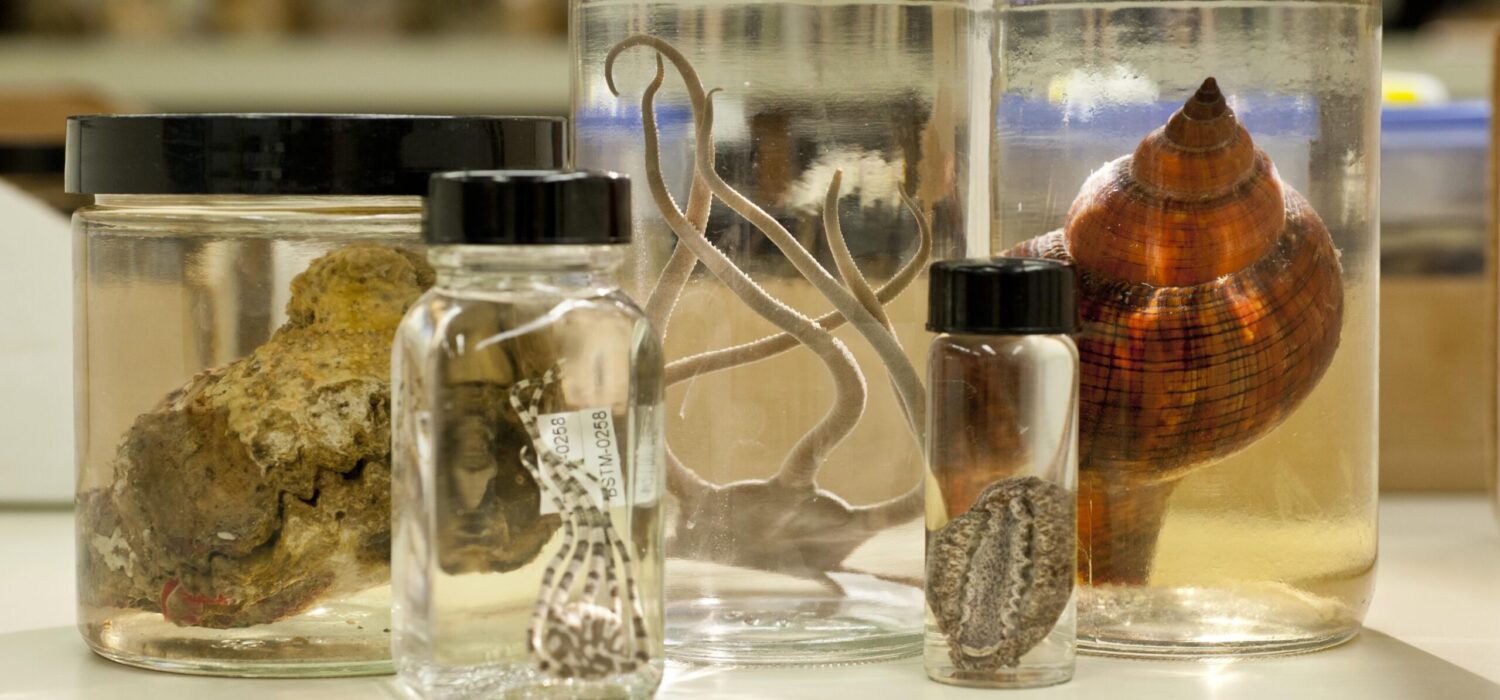An upcoming NSF-funded workshop will assess the current state of biological collections from Antarctica held in the USA, and identifying the value of and need for a repository for Antarctic organisms. In addition, workshop participants will explore potential benefits and challenges of such a biological repository, including discussions related to collection organization, accessibility, infrastructure, and the feasibility of a self-sustaining repository(ies) in order to expand our understanding of Antarctic biology and its diverse ecosystems. The workshop aims to bring together biologists working on a variety of taxa and disparate biological problems, museum curators, collections managers and program managers, as well as data scientists to discuss the scope of such a repository.
The workshop is currently scheduled for February 2-4, 2022 for both in-person participants (as well as others who would prefer access via Zoom) at the National Museum of Natural History (Smithsonian Institution), home of the Global Genome Initiative (GGI), with support from the Senior Scientist at GGI, Dr. Jonathan Coddington and its Program Manager, Katharine Barker. Because of the uncertainties associated with the trajectory of COVID-19, the workshop may need to be held at an alternate venue, and even possibly remotely.
Topics for discussion at the workshop will include: specimen management, cataloguing, and accessibility, single versus multiple repositories, financial management, a presentation by Dr. Nico Franz from National Ecological Observatory Network (NEON) at Arizona State University, which provides an example of a biorepository supported by NSF, and outreach opportunities.
In preparation for the workshop, the Organizing Committee is assessing the current state of Antarctic collections in the U.S., including both personal and museum collections. Please complete this survey by November 22, 2021 to provide information about your collection and thoughts on the need for an Antarctic biological repository. The survey includes questions about the number and type of specimens in your collection and how they are stored and cataloged. Completing the survey will take approximately 15-30 minutes.
More information about the workshop can be found here. Those interested in attending the workshop are invited to apply for travel support of up to $1200 here. Applications are due by November 22, 2021 and awards will be announced by December 15, 2021.

